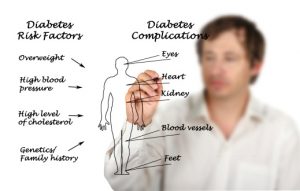
For the study employees with prediabetes were identified – elevated blood sugar levels. Having prediabetes increases the risk of developing type 2 diabetes and cardiovascular disease.
Half of the employees partook in a 16-week group-based intervention that taught employees how to reduce calories and fat, and how to achieve weight loss, increase exercise and attend meetings at lunch or after work. The other half received standard care and a booklet of tips to reduce weight.
Those in the intervention group lost on average 5.5 percent of their body weight and maintained weight loss for up to three months. The other group only lost half as much weight as the intervention group.
Lead author, Carla Miller, said, “Adults spend a large portion of their time at work. This study shows that it is not only feasible to implement a comprehensive lifestyle intervention at the work site – it is an effective way to prevent disease. Participants who attended more group discussion sessions and monitored their food and physical activity lost more weight, and weight loss is the primary way to prevent the development of type 2 diabetes.”
Additionally, the intervention group also saw their fasting glucose levels improve along with meeting their requirements of 150 minutes of exercise a week. Intervention participants also increased their fiber intake compared to the conventional treatment group.
Dr. Miller suggests that workplace interventions are beneficial for those at risk for type 2 diabetes, but in the long run they require support to maintain results after three months.
Also read: Personally tailored diabetes care effective in women, not men
Coffee compounds could help prevent type 2 diabetes
Sources:
http://www.eurekalert.org/pub_releases/2015-12/osu-pda121115.php